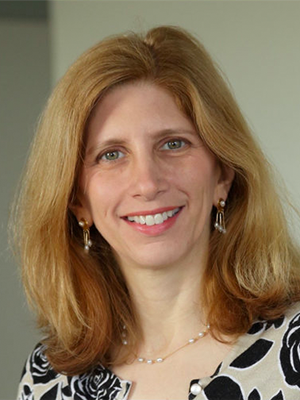Pediatric Endocrinology Inter-Institute Training Program

- Rachel Gafni, MD, Acting Progsram Director, Pediatric Endocrinology Fellowship Program and Senior Research Physician, Craniofacial and Skeletal Diseases Branch, NIDCR
- Christina Tatsi, MD, PhD, Assistant Clinical Investigator, NICHD
- Marissa Lightbourne, MD, Assistant Research Investigator/Staff Clinician, NIDDK
- Youn Hee Jee, MD, Staff Clinician, NICHD
- Deena Zeltser, MD, Staff Clinician, NICHD
- Jeffrey Baron, MD, Head, Section on Growth and Development, NICHD
- Jack Yanovski, MD, PhD, Head, Section on Growth and Obesity, NICHD
- James Mills, MD, Senior Investigator, Division of Epidemiology, Statistics, and Prevention Research, NICHD
- Andrew Bremer, MD, PhD, Program Director, Pediatric Growth and Nutrition Branch, NICHD
- Miranda Broadney, MD, MPH, Program Director, Division of Diabetes, Endocrinology, and Metabolic Diseases, NIDDK
- Margaret Keil, MS, CRNP, Director, Pediatric Endocrine Clinical Services, NICHD
- Deborah Merke, MD, Adjunct Investigator, NICHD, Chief, Section of Congenital Disorders, Clinical Center
- Alison M. Boyce, MD, Lasker Tenure-Track Investigator, Section on Skeletal Disorders and Mineral Homeostasis, NIDCR
- Rebecca J. Brown, MD, MHSc, Lasker Tenure-Track Investigator, Diabetes, Endocrinology, and Obesity Branch, NIDDK
- Stephanie Chung, MD, Lasker Tenure-Track Investigator, Diabetes, Endocrinology, and Obesity Branch NIDDK
- Brittney A. Corbin, BA, Pediatric Endocrine Fellowship Program Coordinator, NICHD
- Zubeyir Gun, MD, Fellow, Pediatric Endocrinology Fellowship Program
- Sanjay Gupta, MD, Fellow, Pediatric and Adult Endocrinology Fellowship Programs
- Vivian Szymczuk, MD, Fellow, Pediatric Endocrinology Fellowship Program
The Fellowship in Pediatric Endocrinology is a three-year program, accredited by the Accreditation Council for Graduate Medical Education (ACGME). Applicants must have completed a residency in Pediatrics or Medicine/Pediatrics and be eligible for the American Board of Pediatrics certification examination (exceptions can be made on an individual basis, according to ACGME rules). The fellowship is now closed to new trainees, although it is possible for research-oriented fellows at other institutions who are selected to participate in the Pediatric Scientist Development Program to complete their training in the program. Training takes place predominately at the National Institutes of Health Clinical Center, which is one of the largest and most sophisticated research institutions in the United States. Additional clinical training takes place at Children's National Hospital in Washington, DC, and at Walter Reed National Military Medical Center in Bethesda, MD. The fellowship is designed to provide clinical and research exposure that fosters the development of academic pediatric endocrinologists with experience in clinical, translational, and/or basic research.
The URL https://www.nichd.nih.gov/about/org/dir/osd/tp/peitp provides more detailed information about the program.
Program structure
The Pediatric Endocrinology Fellowship at NIH consists of one year of clinical training and two years of combined clinical and research training.
First year
A typical training schedule for first-year fellows includes four months at the NIH Clinical Research Center, four months at Children’s National Health Systems (CNHS), two months at Walter Reed National Military Medical Center, one month on consult service, and one month elective (e.g., at The Johns Hopkins University Hospital, Baltimore, MD). Continuity clinics are held once a week and alternate between the NIH outpatient pediatric endocrine clinic and the diabetes and general endocrine outpatient clinics at CNHS. In addition, multi-disciplinary clinics in long-term follow-up for bone disorders, neuroendocrine tumors, disorders of sexual development, obesity, and other conditions are offered. The Clinical Center maintains clinical research protocols involving, among others, the treatment of adrenal and pituitary tumors, congenital adrenal hyperplasia, McCune-Albright syndrome, disorders of sexual development, obesity, and lipodystrophy.
Second and third years
During the second and third years, mandatory clinical responsibilities are limited to one half-day continuity clinic per week and inpatient pediatric endocrine consultation on an on-call basis for three months per year. Fellows learn how to develop a research protocol, conduct a clinical study or basic research, evaluate the results, and generate presentations and manuscripts suitable for publication. Fellows may choose to work in a laboratory setting, clinical setting, or both, and they perform state-of-the-art basic and clinical research closely supervised by internationally known mentors. During the first year, a research mentor is chosen, and the fellow’s progress is monitored by the Scholarship Oversight Committee. Many of our fellows choose academic careers following graduation.
Application information
As stated above, the program is now closed to new first-year applicants, but physician-scientists interested in completing their training at the NIH should seek admission to the Pediatric Scientist Development Program at https://amspdc-psdp.org.
Publications
- Szymczuk V, Taylor J, Michel Z, Sinaii N, Boyce AM. Skeletal disease acquisition in fibrous dysplasia: natural history and indicators of lesion progression in children. J Bone Miner Res 2022 37:1473–1478.
- Gladding A, Szymczuk V, Auble BA, Boyce AM. Burosumab treatment for fibrous dysplasia. Bone 2021 150:116004.
- Zenno A, Brady SM, Faulkner LM, Ballenger KL, Fatima S, Yanovski JA. Circadian variation of serum leptin and adipose tissue changes in children. Pediatr Obesity 2022 12:e12984.
Collaborators
- Andrew Dauber, MD, MMSc, Director, Pediatric Endocrinology, Children's National Hospital, Washington, DC
- Karen S. Vogt, MD, Program Director, Pediatric Endocrinology, Walter Reed National Military Medical Center, Bethesda, MD
Contact
Brittney Corbin, BA, Program Coordinator
Brittney.Corbin@nih.gov
Tel: 301-496-4786
Pediatric Endocrinology Training Program
NICHD, NIH
Building 10, Room 2-5142
10 Center Drive
Bethesda, MD 20892-23330


